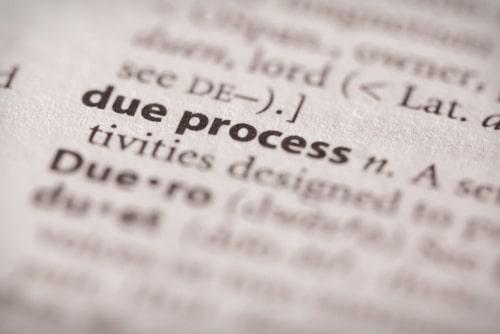Understanding Due Process and the Bill Cosby Case
 If you have picked up any newspaper or turned on cable news in the past few days, you have likely heard that actor/comedian Bill Cosby was released from prison this week after the Pennsylvania Supreme Court overturned his 2018 sexual assault conviction. In its decision, the court wrote that Cosby’s due process rights were violated. While many legal scholars have agreed that the court made the right decision, many people across the country, including Cosby’s accusers, are outraged by the decision and Cosby’s freedom.
If you have picked up any newspaper or turned on cable news in the past few days, you have likely heard that actor/comedian Bill Cosby was released from prison this week after the Pennsylvania Supreme Court overturned his 2018 sexual assault conviction. In its decision, the court wrote that Cosby’s due process rights were violated. While many legal scholars have agreed that the court made the right decision, many people across the country, including Cosby’s accusers, are outraged by the decision and Cosby’s freedom.
The Case
In 2018, a Pennsylvania jury found Cosby guilty of drugging and sexually assaulting a victim in his home in 2004. In 2005, the victim went to the police about the assault, but no criminal charges were pressed. The following year, the victim and Cosby reached a $3.4 million settlement in a civil lawsuit.
Several years after the settlement agreement, the Associated Press (AP) sued and won to have Cosby's depositions in the civil case unsealed. There were also dozens of women who came forward, alleging that Cosby drugged and raped them, too. New prosecutors were interested in bringing criminal charges against the actor; however, the only case that fell within the statute of limitations was the victim from the 2004 incident.
Some of the strongest pieces of evidence that prosecutors used in the criminal case were depositions that Cosby gave in the civil lawsuit. Cosby was sentenced to 3 to 10 years in prison, a fine of $25,000 plus prosecution costs, and a lifetime classification as a “sexually violent predator.”
The Reversal
Under the Fifth Amendment to the U.S. Constitution, people have the right to protection from self-incrimination and can refuse to answer any question that could result in criminal charges. However, in a deposition for a civil lawsuit, when there is no threat of criminal charges, the person is required to answer all questions. In 2005, after the then-prosecutor issued a statement that there would be no criminal charges filed in his case, Cosby went ahead with all depositions and did not invoke his Fifth Amendment rights.
In its decision to overturn Cosby’s conviction, the court wrote: “Cosby did not invoke the Fifth Amendment before he incriminated himself because he was operating under the reasonable belief that D.A. Castor’s decision not to prosecute him meant that the potential exposure to criminal punishment no longer exist[ed].”
The justices also wrote in their decision that the courts are obligated to make sure that prosecutors are kept to their word and to ensure that any promises or agreements they make with defendants are honored.
As we begin the Fourth of July celebration of the birth of our nation, we are reminded of the vision our founding fathers had, including the freedoms they fought so hard for, that is ensconced in the Declaration of Independence, the Constitution, and the Bill of Rights. The Cosby case is a reminder that all criminal defendants have a right to due process, no matter how serious the charges against them.
Contact a Chicago Defense Attorney for Legal Assistance
If you have been charged with a crime, it is critical to have a Rolling Meadows criminal defense lawyer advocating for you and making sure all of your rights are protected. Call Hartsfield Law at 312-345-1700 to schedule a free and confidential consultation and find out how we can help.
Sources:
https://s3.documentcloud.org/documents/20981893/6-30-21-cosby-opinion-majority-wecht.pdf
https://constitution.congress.gov/browse/essay/amdt5_4_1/













 312-345-1700
312-345-1700



